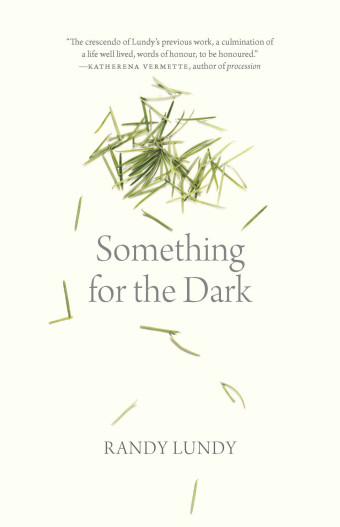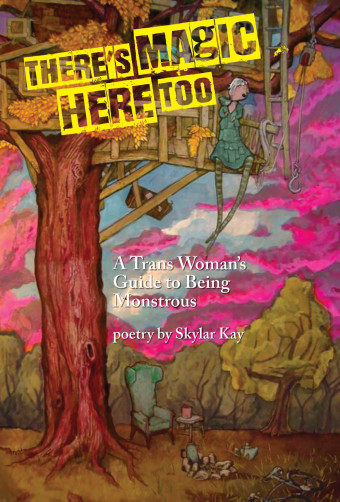What started off as a university portfolio project has become Bret Crowle’s debut collection of poetry, Jesus Is a Voyeur.
“Honestly, it feels simultaneously surreal, unreal, and too real. The idea of publishing a book has been a dream of mine since I was young,” she says.

- Jesus is a Voyeur
- Bret Crowle
- Frontenac House Ltd.
- $19.95 pb, 88 pages
This collection, which Crowle describes as a “love letter for anyone who feels ostracized,” explores the losses of womanhood, religion, and mental well-being.
“I grew up in rural Alberta, where there wasn’t a lot of support, representation, or solidarity for people who were different,” she says. “It was a vulnerable time. I was coming to terms with struggles with mental illness, with being queer, and with understanding my body and its relation to sex, but I never felt safe in any of those explorations. I simply felt shameful and fearful.”
Jesus Is a Voyeur begins with the dedication, “To all ‘fallen women’ condemned by patriarchal fear,” and portrays the struggle of womanhood through the themes of religion and patriarchy.
“My intention was to show the similarities that exist between patriarchal and religious foundations, all of which place the blame on ‘womanhood.’ This idea of ‘failing to be a woman’ is entirely constructed on societally imposed expectations, which are leveraged and abused as punishment against anyone who doesn’t conform,” says Crowle.
“The punishment shows itself throughout the collection and takes form within topics such as motherhood (what happens when you are unable to be a mother versus when you choose not to be a mother?), innocence (you are expected to be innocent and to bear innocence; what happens when that is stripped from you against your will?), and sexuality (at what point do you bend and comply to compulsory heterosexuality to avoid being outcast?).”

In “How to Have a Hostile Uterus,” for example, Crowle grapples with the woman’s body, as well as both societal and religious pressures around child-bearing: “A child is to be expected. A child can / never be.”
Crowle also uses form and structure to draw parallels between the confinement of religion and the chaos of mental illness. Some of the most fluid poems, like “www.mindfreedom.org,” explore mental illness and the lack of control. But, on the other hand, she says, “poems such as ‘In a Week,’ ‘Godsent,’ and ‘Persephone/Eve’s Lament,’ carry more fugal elements and structured forms that often present themselves in religious scriptures and hymns.”
However, this collection is not all about struggle. There is hope and resilience in the way Crowle pairs sex and faith together.
“To me, there is a sense of reclamation in putting sex, especially in the realm of femininity, alongside faith. There is a lot of shame applied to sex within the Bible, so being able to own that is something I both cherish and aim to do in my work.”
Crowle’s personal journey toward self-acceptance and transformation is apparent throughout this collection.
“I like to think that, somewhere, little Bret is cheering me on. She would be proud, and that’s a really cool thought.”













